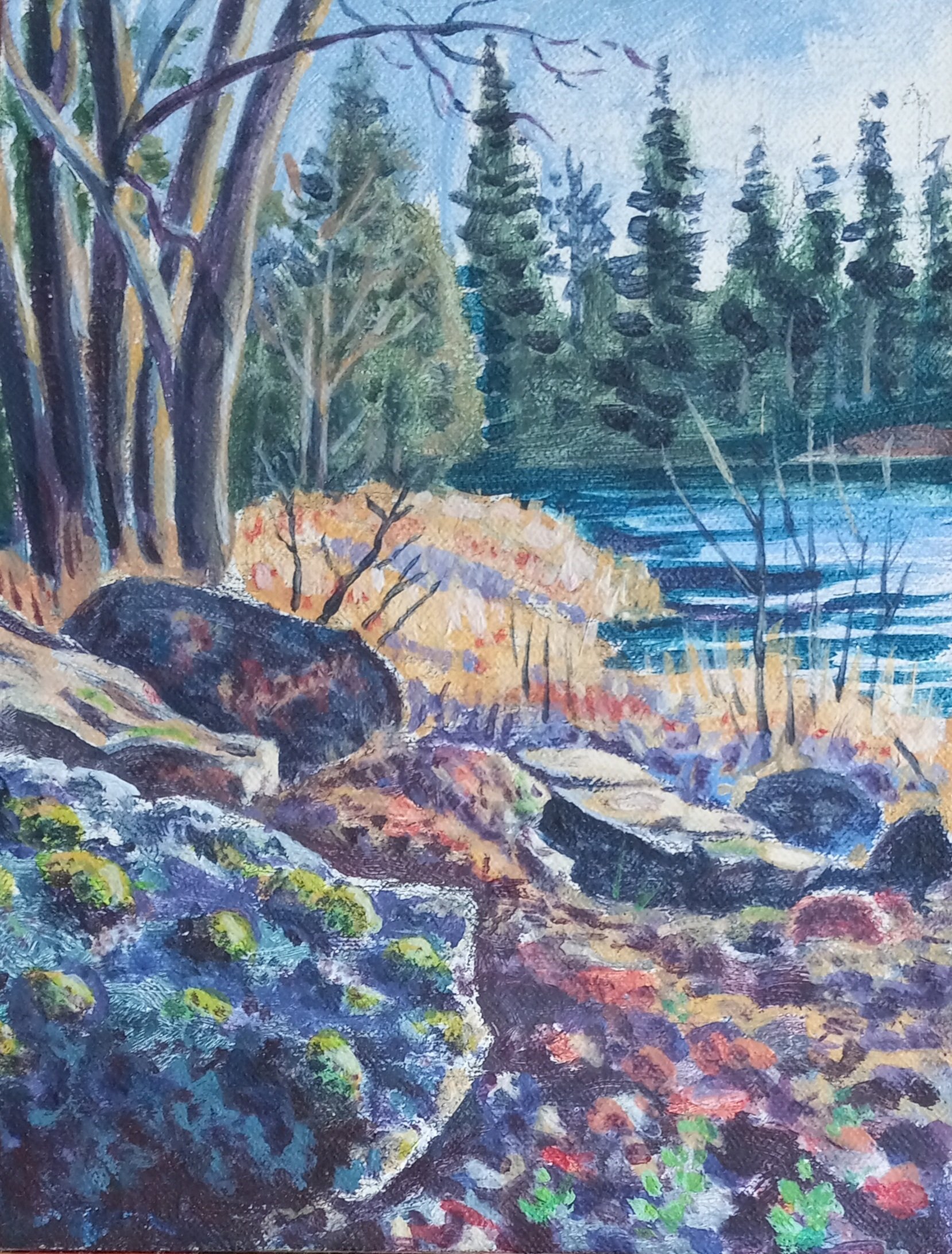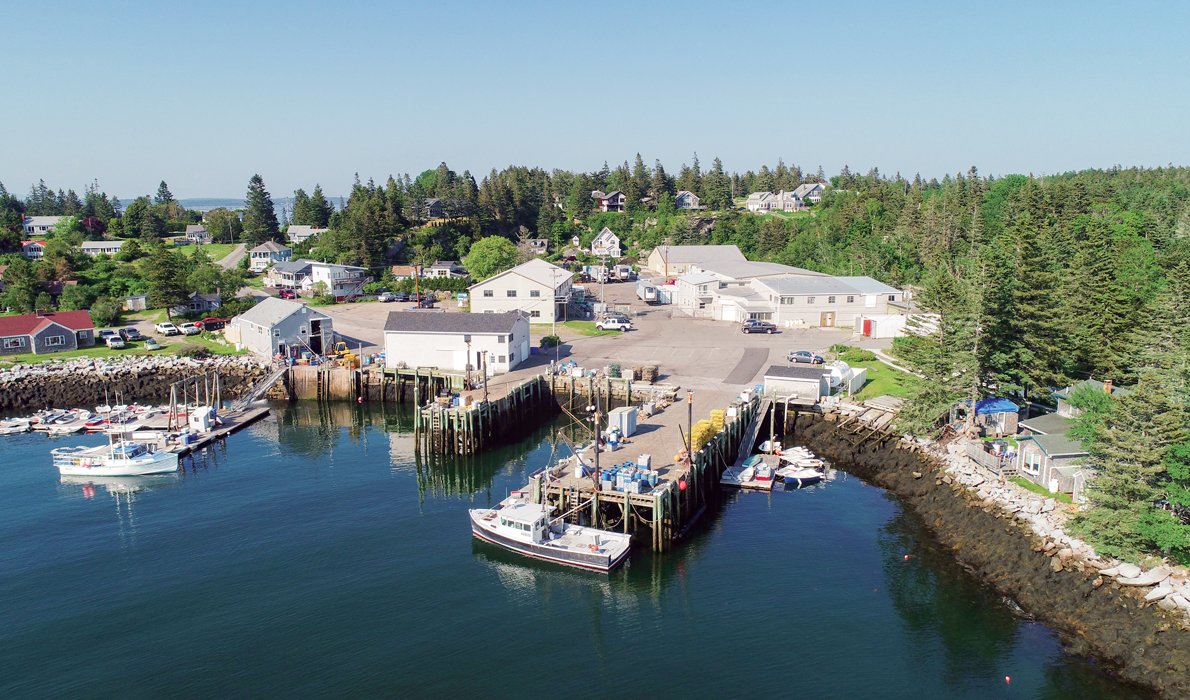ISSUE #1 • AUTUMN 2023
From the
Ground Up
Conversations about conservation, climate, and communities in New England.
ARTWORK BY JON LUOMANOTE FROM OUR EDITORS
The climate crisis has exposed a need for a dramatically different, more integrated approach to conservation. While people have lived in reciprocity with land and water for millennia, unchecked development and destructive practices of the past century have threatened the natural systems and society itself here in New England and around the world. Each season, we share stories, conversations, research and perspectives that explore the inextricable connections between conservation, climate, and communities — human and wild.
Our hope is to inspire action and support for policies and practices that protect New England’s Wildlands, Woodlands, Farmlands & Communities.
FEATURE • ISSUE 1
The Wonder in an Acorn
by Chelsea Steinauer-Scudder
Several days ago, I walked with my daughter at Pleasant Hill Preserve: 161 acres of conserved land in Scarborough, Maine, with toddler-friendly trails that wind through meadows and forests. In the middle of October, these trails offer a trove of treasures to place in palms and pockets. Acorns. Fallen and falling leaves. Thick clusters of silver-white seeds that have recently replaced bursts of goldenrod flowers. Tufting cattails. (We stopped to giggle at how the cattails looked a bit like hotdogs, and this would later prove to help my daughter remember their names.)
Aspen turned three a month ago and her delight at the world is not only palpable in the movements of her body but ever-expressed in her growing vocabulary. She speaks words that, if uttered from the mouth of an adult, would almost certainly sound sarcastic or ironic, but from her are utterly sincere. “Oooooh!” she says. “WOW!” And “This walk is SO FUN!”
FEATURE • ISSUE 1
An Integrated Approach to New England Conservation and Community
by Brian Donahue
The climate crisis is more than a technical glitch—an unfortunate mismatch between burning the jackpot of fossil energy that underlies the rise of industrial civilization and the earth’s capacity to safely absorb the waste. This crisis is driven by an unjust, extractive economic system that has repeatedly undermined both natural systems and human communities. We need urgently to muster an enormous societal effort to remake the way we treat the land. Conservation needs to move from seeking relief from the system of injustice and extraction to replacing that system with something better.
New England has seen its share of injustice and extraction: the decimation of Native people and expropriation of their land; the commodification and extirpation of wildlife and forests; massive forest clearing for agriculture; overfishing; dams, and water pollution that drove the explosive rise of a textile industry that relied upon the extraction…
Conversations
Climate Change: “We’re Essentially in a Wartime Situation”
by Jamie Sayen
A Conversation with Bill McKibben
Since the publication of The End of Nature in 1989, Bill McKibben has become our public conscience during the climate crisis. In 2007 Bill and seven Middlebury College students founded 350.org, a global movement of climate activists committed to forcing change and arresting the rise in temperature before global temperatures reach 1.5º or 2º Celsius above pre-industrial levels. Understanding that climate and democracy are inseparably linked, Bill helped launch Third Act, “a community of experienced Americans over the age of sixty determined to change the world for the better,” in 2021. Third Act activists are now working with the more youthful activists of 350.org to address the crises in democracy and our climate. Bill and I spoke on a lovely afternoon at the recent Eastern Old Growth Conference in Moultonborough, New Hampshire.
Earth Returns Our Love
by Tom Butler
Let’s be honest: Writing the land is impossible. The land writes itself, sings the song of itself in languages older than words, in creak and croak and thunderclap, in wail of loonsong, murmur of leaf rustle, insect hum, wolf howl. The languages of people, various and rich but so new in the pageant of life, are wholly inadequate to capture the land’s music.
But . . . attempting to write the land is noble. And delightful. Perhaps even essential. To add our compositions, imperfect and incomplete as they may be, to the land’s great symphony, joining our human song to the chorus of voices helps us make sense of our place and purpose in the diversity of life.
Policy Desk
New England Policy Chronicle
by Alex Redfield
A key goal of this publication, along with sharing information and stories about the relationships between society and nature, is to inspire readers to engage with local advocates and policymakers in support of a future that reflects the values of equity and diversity in our society, in our landscape, and in the ecosystems where we live. We hope the Policy Desk section of From the Ground Up becomes a useful repository of inspiring actions and opportunities for readers across New England.
Protecting Biodiversity in Vermont—It’s the Law
by Liz Thompson
A Conversation with Vermont State Representative Amy Sheldon, Model Public Servant
On June 12, 2023, a groundbreaking new law, the Community Resilience and Biodiversity Protection Act, became a reality in Vermont after more than two years of study and testimony.
The new law, Act 59, calls for protection of 30% of Vermont’s land and waters by 2030, in keeping with President Biden’s 2021 Executive Order that sets the same goal nationwide. The Vermont law takes it further, though, calling for protection of 50% of the state’s lands and waters by 2050.
Conservation in Action
Eastern Old Growth Forest Conference 2023
by Liz Thompson
A Gathering, a Celebration, a Call to Action
Old growth forests were the predominant condition on the landscape of the Northeast prior to European settlement. They are exceedingly rare today, explaining, perhaps, our fascination with them, our desire to understand them, and our plea for protecting the region’s remaining old growth.
From time to time, scientists who study old growth forests gather to share data, research findings, and news about the discovery and protection of old growth forests. Such a gathering happened this September in New Hampshire.
Read, Watch, Listen
The Bookshelf
Essential reading from our editors and contributors.
ARTWORK BY JACO TAYLORBulletin Board
Events, updates, and announcements from our partners and friends from around the region.
Want to join the conversation?
We invite your questions, reactions, debates, suggestions, and contributions. Our editorial team is committed to expanding the chorus of voices needed to safeguard the health, resiliency, and vibrancy of New England’s communities—both human and wild.
Reflections
Artistic expressions that reflect Nature's complexity, simplicity, and beauty.
Photo credit: Steve Karpiakeel grass - Sears Island
A POEM BY GARY LAWLESS
Hard to be lonely
in the lushness of
eel grass, feeling the ocean's
ebb and flow -
hard to know
want or hurt or
waste, here below
the sun, the sky,
the water's edge of
grass and mud and
moving with the moon -
hard to know
the hearts of men, those
who would fill and spill and
kill all below
their own shallow depth of heart, their
line of sight -
hard to know these hearts,
hard to be alive
hard to survive
in the face of their
rush toward riches,
toward death,
hard to be alive.































